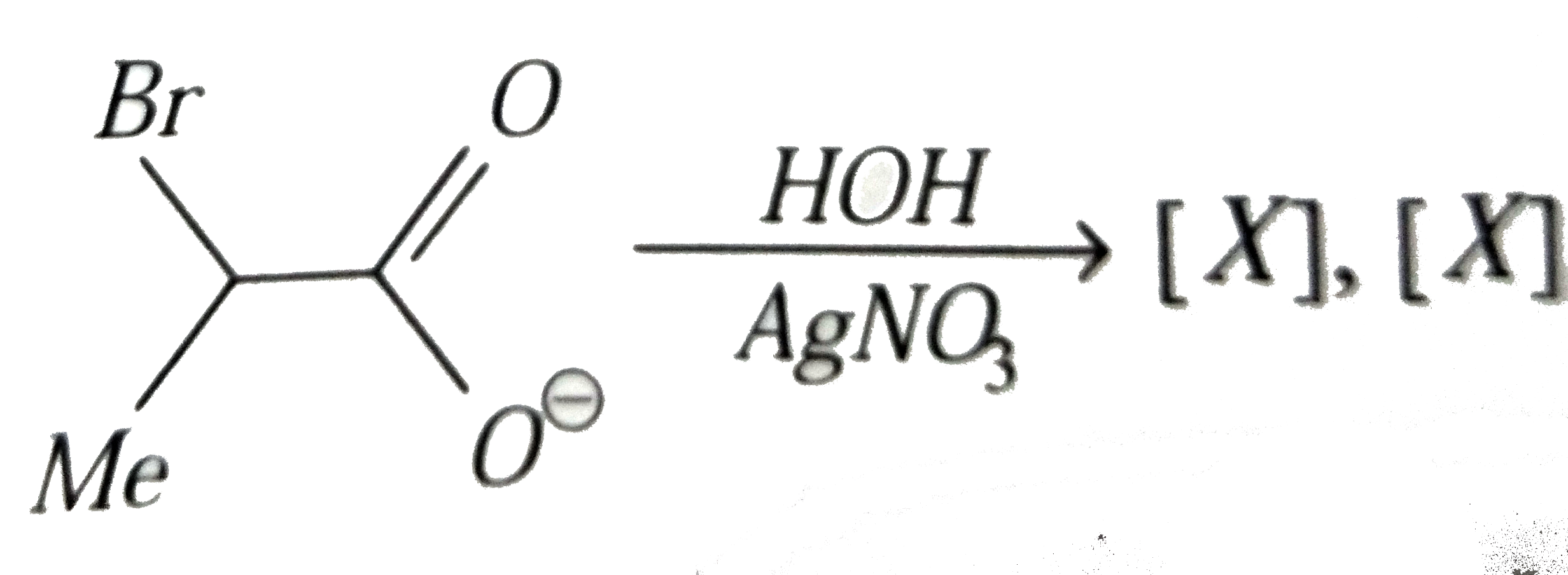Complete Solutions to Critical Thinking (Comprehension type Questions) of chapter HALOGEN CONTAINING COMPOUND of Class 12 book with complete answers and questions
| Class 12 | CHEMISTRY |
| Chapter | HALOGEN CONTAINING COMPOUND |
| ERRORLESS | Critical Thinking (Comprehension type Questions) |
| Number Of Questions | 6 |
| Academic Year | 2023-24 |
The reactions of `CI_(2)` gas with cold-dilute and hot-concentrated NaOH in water give sodium salts of two different oxioacids of chlorine, P and Q, respectively. The `CI_(2)` gas reacts with `SO_(2)` gas, in presence of charocal, to give a product R reacts with white phosphorus to give a compound S. On hydrolysis, S gives an oxoacid of phosphorus.
P and Q, respectively, are the sodium salts of02:46View SolutionThe reactions of `CI_(2)` gas with cold-dilute and hot-concentrated NaOH in water give sodium salts of two different oxioacids of chlorine, P and Q, respectively. The `CI_(2)` gas reacts with `SO_(2)` gas, in presence of charocal, to give a product R reacts with white phosphorus to give a compound S. On hydrolysis, S gives an oxoacid of phosphorus.
R, S and T, respectively, are03:26View SolutionVelocity of the `S_(N^(2))` reaction depends on the concentration of the substrate as well as te nucleophile.
The reaction is favoured by strong `Nu^(overset(..)(ө))`, and in the presence of polar aprotic solvent, optically active halides give walden inversion by `S_(N^(2))` mechanism. the presence of hetro group (atom as `beta-C` atom, unsaturation at `beta-C`, and `(-overset(O)overset(||)(C)-)` Allyl halides also give `S_(N^(2))` mechanism. EDG at ortho-and para-positions in benzyl halides favours `S_(N^(1))` mechanism, whereas EWG favours `S_(N^(2))` mechanism.
Q. Which of the following will give `S_(N^(2))` mechanism04:31View SolutionVelocity of the `S_(N^(2))` reaction depends on the concentration of the substrate as well as te nucleophile.
The reaction is favoured by strong `Nu^(overset(..)(ө))`, and in the presence of polar aprotic solvent, optically active halides give walden inversion by `S_(N^(2))` mechanism. the presence of hetro group (atom as `beta-C` atom, unsaturation at `beta-C`, and `(-overset(O)overset(||)(C)-)` Allyl halides also give `S_(N^(2))` mechanism. EDG at ortho-and para-positions in benzyl halides favours `S_(N^(1))` mechanism, whereas EWG favours `S_(N^(2))` mechanism.
Q. Which of the following will give Walden inversion04:56View SolutionVelocity of the `S_(N^(2))` reaction depends on the concentration of the substrate as well as te nucleophile.
The reaction is favoured by strong `Nu^(overset(..)(ө))`, and in the presence of polar aprotic solvent, optically active halides give walden inversion by `S_(N^(2))` mechanism. the presence of hetro group (atom as `beta-C` atom, unsaturation at `beta-C`, and `(-overset(O)overset(||)(C)-)` Allyl halides also give `S_(N^(2))` mechanism. EDG at ortho-and para-positions in benzyl halides favours `S_(N^(1))` mechanism, whereas EWG favours `S_(N^(2))` mechanism.
Q. Which of the following will give `S_(N^(2))` reaction

Select the correct answerView SolutionVelocity of the `S_(N^(2))` reaction depends on the concentration of the substrate as well as te nucleophile.
The reaction is favoured by strong `Nu^(overset(..)(ө))`, and in the presence of polar aprotic solvent, optically active halides give walden inversion by `S_(N^(2))` mechanism. the presence of hetro group (atom as `beta-C` atom, unsaturation at `beta-C`, and `(-overset(O)overset(||)(C)-)` Allyl halides also give `S_(N^(2))` mechanism. EDG at ortho-and para-positions in benzyl halides favours `S_(N^(1))` mechanism, whereas EWG favours `S_(N^(2))` mechanism.
Q. In the reeaction , [X] isView Solution
, [X] isView Solution
Critical Thinking (Comprehension type Questions) questions and complete solutions for chapter HALOGEN CONTAINING COMPOUND of UNIVERSAL BOOK DEPOT 1960 CHEMISTRY (HINGLISH) of Class 12
All Exercises from ERRORLESS Class 12 CHEMISTRY HALOGEN CONTAINING COMPOUND
- Critical Thinking (Comprehension type Questions)
- Critical Thinking (Integer Type Question)
- Critical Thinking (Jee (Advanced) 2018)
- Critical Thinking (Matrix match type Question)
- Critical Thinking (Objective Questions)
- Critical Thinking (Reasoning type Questions)
- Ordinary Thinking Objective Question (Introduction of Halogen containing compounds)
- Ordinary Thinking Objective Question (Preparation of Halogen containing compounds)
- Ordinary Thinking Objective Question (Uses of Halogen containing compounds)
